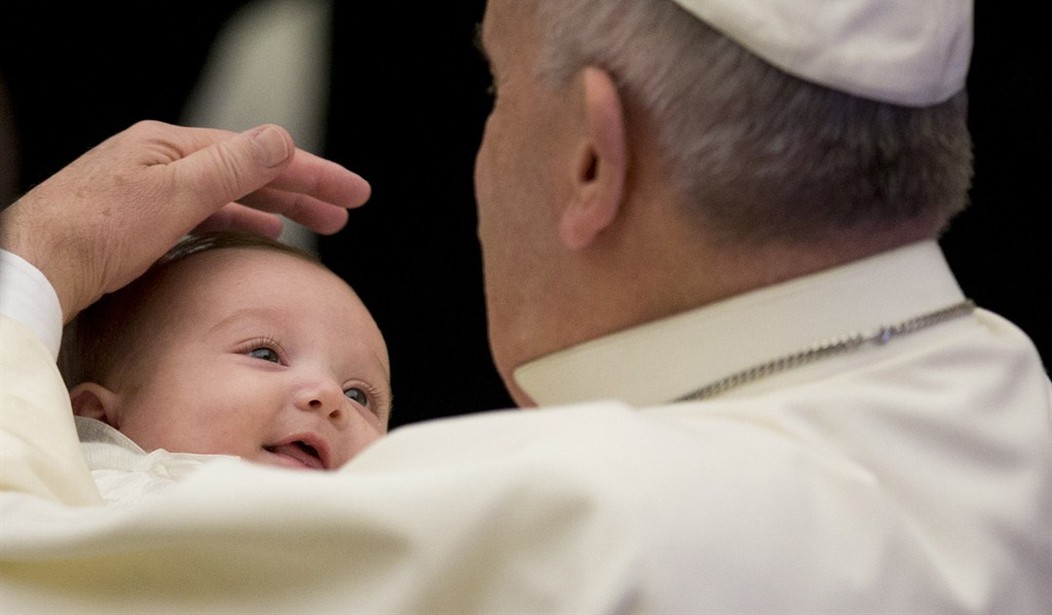A month ago, during the U.N. climate change conference in Lima, Peru, the Pope warned of the dire consequences of climate change and declared that the "time to find global solutions is running out."
Last October, the Pope said: "An economic system centered on the god of money needs to plunder nature to sustain the frenetic rhythm of consumption that is inherent to it.
"'The system continues unchanged, since what dominates are the dynamics of an economy and a finance that are lacking in ethics. It is no longer man who commands, but money. Cash commands.
"'The monopolizing of lands, deforestation, the appropriation of water, inadequate agro-toxics are some of the evils that tear man from the land of his birth. Climate change, the loss of biodiversity and deforestation are already showing their devastating effects in the great cataclysms we witness."
So Pope Francis condemns both wealth "inequality" and greedy capitalism -- at the same time. That is a contradiction.
History shows that raising a country's standard of living -- addressing its wealth inequality -- requires economic freedom and free markets, a.k.a. capitalism. Economist Milton Friedman said of all the economic systems known to man, capitalism, by far, moves more people out of poverty:
Recommended
"The world runs on individuals pursuing their separate interests. The great achievements of civilization have not come from government bureaus. Einstein didn't construct his theory under order from a bureaucrat. Henry Ford didn't revolutionize the automobile industry that way. In the only cases in which the masses have escaped from the kind of grinding poverty you're talking about, the only cases in recorded history, are where they have had capitalism and largely free trade. If you want to know where the masses are worse off, worst off, it's exactly in the kinds of societies that depart from that. So that the record of history is absolutely crystal clear, that there is no alternative way, so far discovered, of improving the lot of the ordinary people that can hold a candle to the productive activities that are unleashed by the free-enterprise system."
The world's two most populous countries are China and India. In the last 50 years, both countries changed course and began pursuing free markets and encouraging entrepreneurship. As a result, tens of millions of people from India and China are no longer poor. The progress has been nothing short of staggering. Global inequality is declining -- thanks to China and India, which account for more then one-third of the world's population. While the Chinese government avoids the "c" word -- capitalism -- its embrace of free-market reforms has lifted millions out of poverty. Similarly, in India freer markets spark a growth rate that now exceeds that of many countries in the West.
To repeat, worldwide income inequality is shrinking. The Atlantic magazine cites researchers who confirm the shrinking global inequality gap: "First, consider inequality. Academic researchers -- from Xavier Sala-i-Martin of Columbia University, to Surjit Bhalla, formerly of the Brookings Institution and Rand Corporation, to Paolo Liberati of the University of Rome -- all agree that global inequality is declining. That is because 2.6 billion people in China and India are richer than they used to be. Their economies are growing much faster than those of their Western counterparts, thus shrinking the income gap that opened at the dawn of industrialization in the 19th century, when the West took off and left much of the rest of the world behind.
"Paradoxically, the shrinking of the global inequality gap was only possible after India and China abandoned their attempts to create equality through central planning. By allowing people to keep more of the money they earned, the Chinese and Indian governments incentivized people to create more wealth. Allowing inequality to increase at home, in other words, diminished inequality globally. And global inequality, surely, is the statistic that should most concern the leader of a global religion."
Bono, the musician and philanthropist, has spent much of his life pursuing aid for Third World countries. But he had an epiphany. Capitalism, Bono said, lifts far more people out of poverty than aid ever will: "Aid is just a stop-gap. Commerce (and) entrepreneurial capitalism takes more people out of poverty than aid. ... In dealing with poverty here and around the world, welfare and foreign aid are a Band-Aid. Free enterprise is a cure. Entrepreneurship is the most sure way of development."
Any questions?

























Join the conversation as a VIP Member